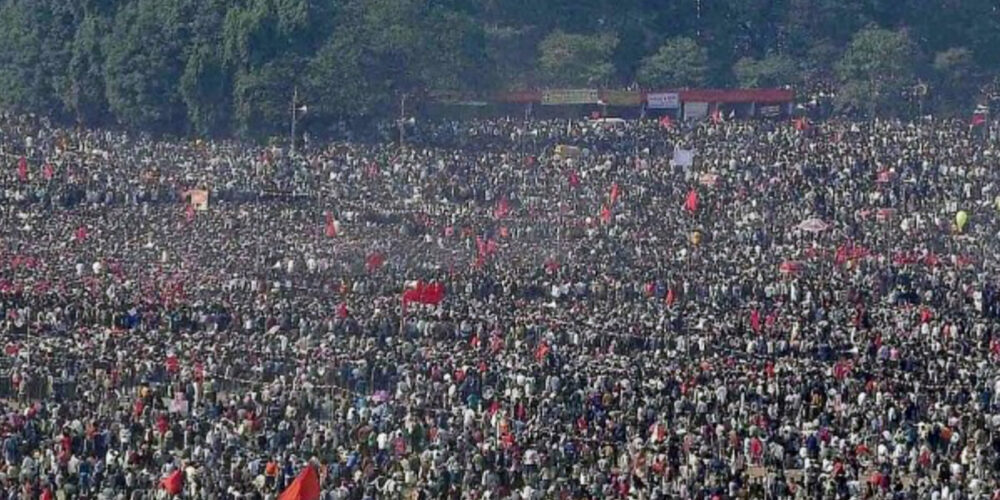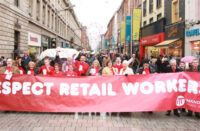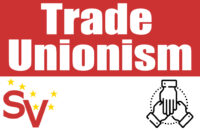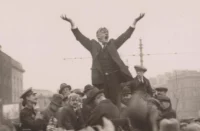Bus drivers in London went on strike last month against pay cuts that a number of “private bus operators” tried to impose. However, all is not as it seems.
The British government has privatised much of the public transport system as they push ahead with their neoliberal agenda. They followed the usual method: slashing funds for public transport, running down the service, then claiming that the public sector is inefficient, costs too much, and provides a poor service.
Ironically, they handed over the running of large sections of London Transport to the French state-owned public transport company Régie Autonome des Transports Parisiens (RATP), which is owned entirely by the French government. It operates three bus companies on the London bus network: London United, London Sovereign, and Quality Line. These companies were at the centre of the dispute threatening workers with pay cuts.
The workers’ union, Unite, has accused RATP of using the pandemic as a “convenient smokescreen” with which to attempt to implement pay policies that could result in some of their drivers losing up to £2,500 a year.
Covid-19 is not the only smokescreen that RATP is using, as pay cuts on the workers on London buses will be indirectly subsidising public transport in France. RATP would not attempt to slash bus workers’ pay in France; the French bus workers wouldn’t stand for it. This must not be ignored. Working-class solidarity and trade unions are the unrustable weapons of our class. And borders must not be used as smokescreens for exploitation.
On the left we have many great slogans, but words are meaningless unless we put them into action. Workers of the world are under attack through globalisation. Globalisation by capital is relentless in cutting pay and working conditions around the world. Workers must also act globally in the interest of our class.
Workers of the world must unite to defeat the attacks on our class. If bus workers in London are under attack by RATP, workers in Paris should come out in solidarity, and in every other town, district or country where RATP uses flags of convenience for exploiting workers, or they will be the next for cuts.
Workers in the “gig economy” in France, the Netherlands, Belgium, Spain and Britain have had victories recently in their working conditions and employment status in national courts. Deliveroo workers in Ireland have had a number of strikes recently. These workers have made some progress, but they are still among the lowest-paid and most precarious workers in existence. Gig economy workers need to join up the dots and link up with their fellow exploited workers around the globe. Globalisation can work two ways; as it stands it is only working for capital.
Covid did not cause poverty wages, but it has most certainly exposed them. Poverty wages are endemic in our economy. In February the taoiseach, Mícheál Martin, faced an angry Dáil when it was revealed that two thousand low-paid workers had travelled from Brazil to work in meat factories in the previous weeks. His reply was that these low-paid workers were essential to the economy!
This is Ireland in 2021. The head of the government admits that the economy depends on low-paid workers, while in order to protect the meat barons’ profits the state allowed public health to be put at extreme risk by allowing thousands to travel from areas in the world with some of the worst mutations of the coronavirus and the highest rates of infection.
If an injury to one is truly an injury to all, workers must unite in solidarity with these overexploited workers, be they meat-packers or Deliveroo drivers. Of course the state has made it illegal to have solidarity action to demand sickness pay and better conditions for these workers. The 1990 Industrial Relations Act has made class solidarity illegal.
Transnational corporations have used multiple locations for years to stop mass action, confining disputes to localised resistance, which is easily controlled with similar anti-worker legislation around the world. The mainstream media, owned and controlled by big business, attack striking workers locally as being greedy and not caring about customers, and emphasise the negative effect on the economy of their actions, creating a narrative about illegal immigrants abusing work permits, etc.
The media remain silent when workers fight back against government austerity, be it yellow vests in France, farmers in India, or students in Greece. Of course there’s wall-to-wall coverage of demonstrations in Hong Kong when the enemies of Western capital are in the crosshairs.
We’ve seen the crass nature of the capitalist system throughout the health pandemic. Britain abandoned its citizens to the virus, resulting in one of the highest death rates from covid in the world, with more than 120,000 dead already. The people who died were considered dispensable, as many were old and considered a burden on the state. Those young enough to work would be replaced easily with the reserve army of labour. Britain moved quickly in introducing vaccines, but this was not out of concern for the citizens: it was in order to reopen the economy as quickly as possible. Ireland chose the EU directive to stick to using only EU-manufactured vaccines, in the interests of Big Pharma.
If we are to win this class war, workers must organise at home and internationally and fight back against the capitalist class. It is essential for workers in Ireland to fight to get all anti-union legislation abolished, north and south, and to build class solidarity.
We have nothing to lose but our chains, and a world to gain.






